Rebuilding Budapest’s Skateboard Scene
Balázs Jassek refurbishes a skatepark and films a documentary with the help of Vodafone’s “Firsts” campaign

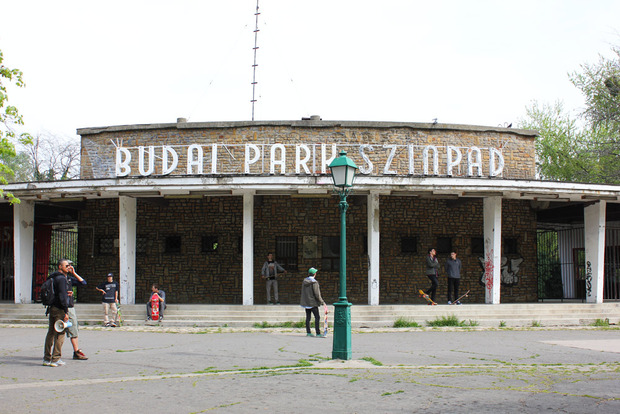
In spite of what the stadium hosted competitions, televised events and billboard cameos may portray, much of the core skateboard industry is suffering. To combat this, a sub-sect of small, independent brands have popped up both stateside and in Northern Europe, pushing skateboarding to return to its roots as a DIY-driven creative outlet. Hoping to catch this wave and encourage the youth of his native Hungary to get onboard is skate industry veteran Balázs Jassek, founder of skate shop Stég and influential distribution company Euroskate. As part of Vodafone’s “Firsts” campaign—a program enabling individuals to do something remarkable for the first time—Jassek recently had the opportunity to film a documentary in support of his mission to bolster the Budapest skate scene, refurbish a local skatepark and host a range of arts-based exhibitions and events in his home city.
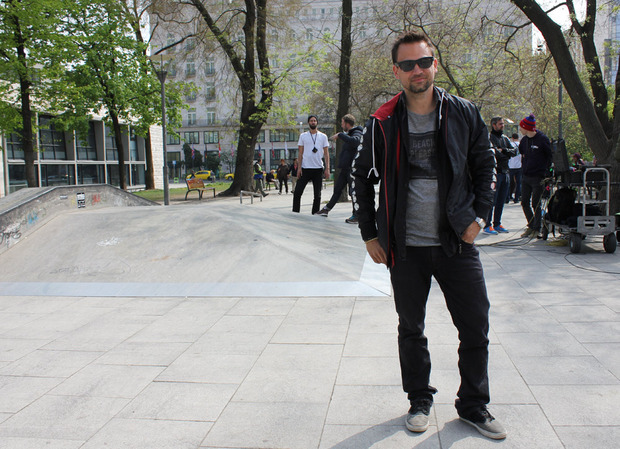
Back when we started skateboarding, we were the bad guys. Nowadays though… people don’t care.
Pushing around the immensely beautiful city, one gets a unique feeling of insignificance, both because of the Soviet-era architecture and the public’s general disinterest in skateboarding. Skateboarders here aren’t shunned like in many American cities, they’re simply ignored. “Back when we started skateboarding we were the bad guys. Then in late ’90s there came a wave when skateboarding was very very hyped—everywhere in the world I think—and it was legitimized,” explains Jassek. Since this time popularity has waned dramatically. “Nowadays though, it’s just something people don’t really recognize. We are not the bad guys, we are not the flashy guys. For the average citizen we are just playing—people don’t care.”

Rather than accept the role of societal ghost, Jassek hopes his city of Budapest will embrace skateboard culture. To make this happen, he’s commissioned art exhibitions and hosted skate-inspired events. “If we have a more artistic way of exhibition—to connect to underground skateboard culture—we can speak to the importance of art in your everyday life because I think it can pull you out of the everyday circle and can give you a bigger view,” says Jassek. “I suggest to these people, ‘You are here now, and you are a part of this. You can feel yourself within it.’ We cannot live without [our computers], but we have to move outside and go to exhibitions, opening ceremonies, to watch artistic movies as well, because abstraction is what we need in life.”
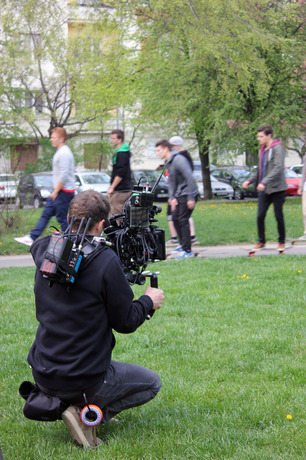
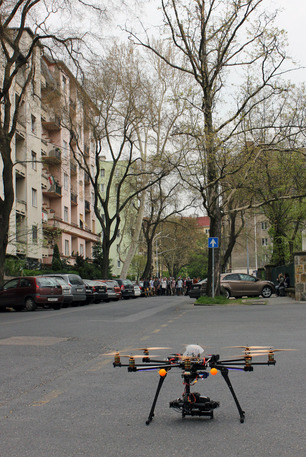
In addition to the documentary—which gathered hundreds of local skaters and was filmed with drones—Jassek refurbished Görzenál, Europe’s largest outdoor skatepark. All in the name of supporting creativity. While there is no doubt a long way to go, Jassek understands this is all dependent upon relationships, and is optimistic that with the right support from the local community and international industry Budapest could perhaps someday be considered an epicenter of European skateboarding, in the same way as Barcelona is known worldwide. “It’s true, we destroy some kind of objects, but they are replaceable,” says Jassek. “But we see things differently, and the connections that are made here are not replaceable. They are strong and lasting.”
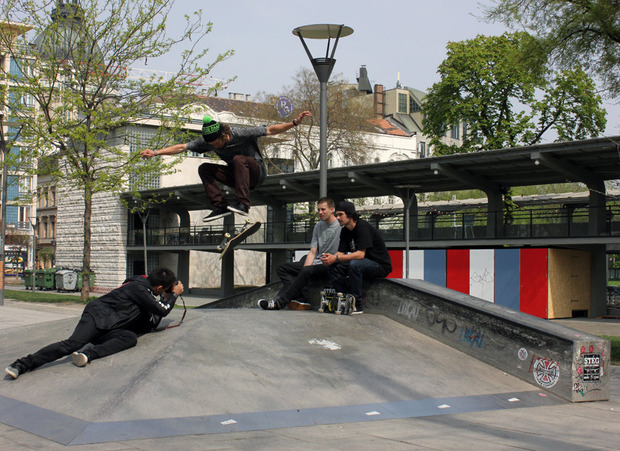
Visit Vodafone online to see Balázs Jassek’s documentary, along with the rest of the campaign’s inspiring “Firsts.”
Photos by Graham Hiemstra











